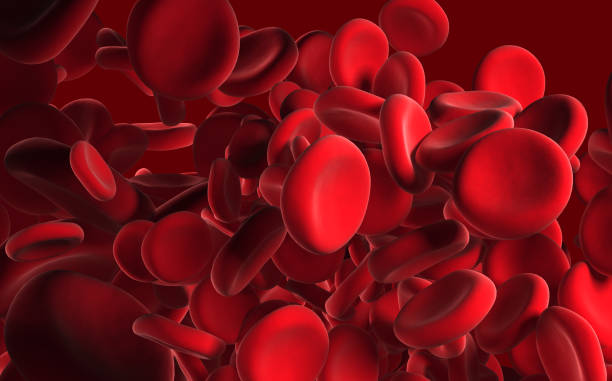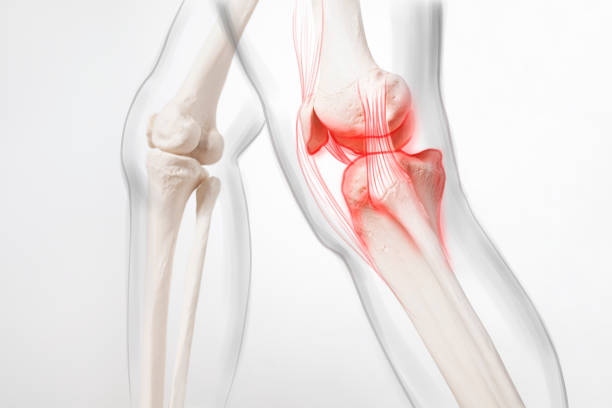Each night, as the sun dips below the horizon and the world falls quiet, we surrender ourselves to an act so ordinary, yet so profoundly mysterious, that for centuries it eluded science. Sleep.
Why do we sleep? What happens inside our brains when we do? Why do we feel so refreshed—or sometimes more exhausted—after a full night’s rest? And how is sleep woven into the very fabric of our health, memory, emotions, and even survival?
In a world addicted to productivity and stimulation, sleep is often treated as expendable. But research reveals something astonishing: sleep isn’t wasted time. It’s sacred biology. An elegant, orchestrated phenomenon more powerful than most people ever imagine.
These six crucial insights into the science of sleep will take you deep inside the sleeping brain—where memories are stitched together, toxins are washed away, and dreams illuminate the subconscious. You’ll never look at sleep the same way again.
1. Sleep Is Not a Pause Button—It’s a Dynamic Symphony of Brain Activity
When we close our eyes at night, it may feel like the brain powers down. But nothing could be further from the truth.
In fact, your brain becomes startlingly active during sleep—cycling through distinct phases, each with a specialized purpose. The two main types of sleep, REM (Rapid Eye Movement) and NREM (Non-Rapid Eye Movement), operate in rhythmic succession, like movements in a symphony.
The Four Stages of NREM Sleep
NREM sleep dominates the first part of the night and includes four stages. The deeper you go, the slower your brain waves become.
- Stage 1: Light sleep. You drift in and out of consciousness. Brain waves slow slightly. This is the bridge between wakefulness and slumber.
- Stage 2: True sleep. Heart rate slows, body temperature drops, and brain waves begin to show short bursts of activity—called sleep spindles—which are thought to protect sleep and consolidate memories.
- Stage 3 & 4: Deep sleep or “slow-wave sleep.” This is where the real magic happens: body repair, immune strengthening, and hormonal regulation occur. Delta brain waves dominate.
REM Sleep: The Mind’s Playground
REM sleep typically begins 90 minutes after you fall asleep and recurs in longer stretches toward morning. Brain waves resemble those of wakefulness—except your body is paralyzed. Why? Because this is when you dream most vividly. It’s nature’s way of keeping you from acting out your dreams.
REM is deeply tied to emotional regulation, creativity, and problem-solving. Studies show people deprived of REM sleep struggle with mood swings, memory issues, and even hallucinations.
What’s extraordinary is that we cycle through these stages roughly every 90 minutes. A healthy night’s sleep includes 4–6 of these complete cycles.
In essence, sleep is not a flatline—it’s a biochemical ballet.
2. Sleep Fuels Memory, Learning, and Creativity
We often say, “Let me sleep on it,” instinctively sensing that sleep helps make sense of complex ideas. But neuroscientific research has confirmed what our ancestors only guessed: sleep doesn’t just support memory—it creates it.
The Three-Step Memory Factory
Memory consolidation—the process of forming long-lasting memories—relies on three stages:
- Encoding: While awake, we take in sensory input and short-term data.
- Consolidation: During sleep, especially NREM Stage 2 and slow-wave sleep, the brain replays and strengthens the new information.
- Retrieval: When awake again, we can access what was stored.
Sleep acts as a neurological editor, deciding which memories to keep, which to discard, and how to connect them. While NREM sleep replays factual data (like vocabulary or directions), REM sleep helps bind emotional and abstract memories, forming links between seemingly unrelated ideas.
Creativity and Insight
Research from the University of California, Berkeley, found that during REM sleep, the brain’s neocortex becomes unusually active, randomly stimulating networks of memories. This leads to novel connections—essentially, the brain’s form of creative brainstorming.
It’s no wonder that artists, inventors, and scientists—from Paul McCartney to Nikola Tesla—have claimed to receive flashes of inspiration in dreams.
Sleep doesn’t just solidify what we know; it helps us see what could be.
3. Your Brain Literally Washes Itself While You Sleep
In 2013, researchers at the University of Rochester made a groundbreaking discovery: while you sleep, your brain performs a cleansing ritual unlike anything during wakefulness.
They discovered a network called the glymphatic system—a series of channels that flush cerebrospinal fluid through the brain. Think of it like a nighttime rinse cycle for your neurons.
The Nightly Detox
During deep sleep, the space between brain cells increases by up to 60%, allowing toxic waste products to be more easily cleared. Chief among them is beta-amyloid, a sticky protein fragment linked to Alzheimer’s disease.
Inadequate sleep has been strongly correlated with increased beta-amyloid buildup. Chronic sleep deprivation, therefore, may not just leave you foggy—it could be contributing to long-term neurological damage.
Imagine if your dishwasher only worked while you were asleep. You’d be sure to load it before bed. Similarly, your brain’s cleaning crew only shows up when you’re out cold.
4. Sleep Deprivation Disrupts Every Major System in the Body
The idea that we can “power through” without sleep is a dangerous illusion. Skimping on sleep isn’t a badge of honor—it’s biological sabotage.
The Toll on the Immune System
Even a single night of poor sleep reduces immune function. One study showed that people who slept less than 6 hours a night were four times more likely to catch a cold than those who slept more than 7 hours.
Sleep boosts natural killer (NK) cell activity—critical in fighting infections and even cancer.
Metabolic Chaos
Lack of sleep disrupts hormones that regulate appetite. It increases ghrelin (the hunger hormone) and decreases leptin (the fullness hormone), leading to overeating and weight gain.
It also reduces insulin sensitivity, raising the risk of type 2 diabetes.
Cardiovascular Damage
Sleep deprivation is a known risk factor for hypertension, stroke, and heart disease. One large-scale study found that adults who sleep less than 6 hours per night have a 20% higher risk of heart attack.
The link between poor sleep and cardiovascular health is so strong that daylight saving time—when we lose just one hour of sleep—is associated with a spike in heart attacks the next day.
Mental Health Fallout
Sleep and mental health are inextricably linked. People with insomnia are five times more likely to develop depression. Sleep deprivation fuels anxiety, paranoia, and even suicidal thoughts.
The brain craves balance. Deny it rest, and it begins to collapse.
5. Circadian Rhythms Are the Invisible Metronomes of Life
We don’t just sleep because we’re tired. We sleep because a 24-hour biological clock—our circadian rhythm—demands it.
This internal clock is governed by the suprachiasmatic nucleus (SCN) in the brain’s hypothalamus. It responds to light cues, especially sunlight, to regulate the release of sleep-inducing melatonin.
Light: The Master Timer
Blue light, emitted by screens and LED lights, tricks the brain into thinking it’s still daytime. This suppresses melatonin and delays sleep onset. That’s why sleep scientists recommend limiting screen exposure at least an hour before bed.
Jet lag, shift work, and late-night binge-watching all scramble your circadian rhythms. When this biological clock gets out of sync, the result isn’t just fatigue—it’s immune dysfunction, metabolic issues, and cognitive decline.
Chronotypes: Why Not Everyone Is a Morning Person
Are you a night owl or an early bird? This isn’t just habit—it’s biology. Genetics influence your chronotype, or natural sleep-wake preference. Trying to force yourself into a different pattern can reduce sleep quality and impair performance.
Unfortunately, modern society is biased toward morning types. School start times, office hours, and social norms all reward early risers. But the science says it’s more nuanced. Productivity isn’t about waking early—it’s about sleeping deeply and in alignment with your inner clock.
6. Dreaming Is Essential, Mysterious, and Possibly the Oldest Form of Therapy
Why do we dream? Theories abound—from memory processing to emotional rehearsal to nonsense entertainment.
But mounting evidence shows dreams play a vital role in regulating emotion, defusing trauma, and helping us cope with waking life.
The Theater of REM
During REM sleep, the brain’s emotional center—the amygdala—is highly active, while the rational prefrontal cortex remains relatively quiet. This creates an environment in which emotional experiences can be safely replayed and recontextualized without the intensity of real-life stress.
Matthew Walker, a leading sleep scientist, calls REM sleep “overnight therapy.” It’s where the brain relives difficult experiences, but in a neurochemical bath that dampens the pain. You remember the event, but not the sting.
This may explain why PTSD sufferers often struggle with nightmares and why sleep disorders often follow trauma.
Dreaming and Problem Solving
Studies show people awakened from REM sleep are more likely to solve creative puzzles than those awakened from NREM. The surreal logic of dreams may loosen mental constraints and unlock innovative thinking.
Even ancient cultures—from the Egyptians to the Aborigines—believed dreams held wisdom. Modern neuroscience is catching up.
Dreaming isn’t useless. It’s psychological processing in its rawest, most symbolic form.
Final Thoughts: Sleep Is Not a Luxury—It’s a Biological Imperative
Sleep is not just rest. It’s restoration. Not just downtime, but a carefully orchestrated neurological state essential to survival.
From memory and learning to emotional resilience and physical health, sleep touches every domain of life. Deprive yourself, and you risk more than fatigue. You invite disease, emotional instability, and even early death.
Yet, when honored, sleep becomes a superpower.
So let go of the late-night hustle. Dim the lights. Power down your screens. Create a sanctuary of darkness and silence.
And as you drift into that sacred, swirling unknown, remember: your brain is hard at work—healing, dreaming, remembering, becoming whole.
Sleep well. Your life depends on it.






